Real Options in Practice by Marion A.Brach
$25.00

Real Options in Practice by Marion A.Brach
Get Real Options in Practice by Marion A.Brach at Salaedu.com
Real Options in Practice by Marion A.Brach
Description
Explores real option theory applied in practice
Real options are quickly becoming the valuation and decision-making method of choice for many companies, including oil and gas companies, utilities and natural resource companies, pharmaceutical and biotech companies, Internet companies, and many others.
Real Options in Practice allows readers to view the world of real options from the vantage point of a corporate practitioner applying real option valuation techniques on a regular basis. Expert Marion Brach describes the challenges of implementing a real option framework in practice within a corporate setting. Touching on the real options most firms care about, Real Options in Practice identifies the classic types of real options-deferral, abandonment, switching, expansion, and compound-and explores the main concepts critical to understanding real option theory. Through Brach’s own three-step real option valuation method readers will learn how the theory of real options is now being applied to drive better, more profitable corporate decision-making.
Marion A. Brach, MD, MBA (Hagen, Germany), has undertaken financial valuation of business opportunities and acquisitions using scenario and real option valuation in the biotech industry. A recognized expert on real option theory and practice, Brach received her MBA from the Manchester Business School and frequently speaks at real option seminars.
Acknowledgments.
Real Option–The Evolution of an Idea.
Taking an Idea into Practice.
The Six Basic Managerial Options.
The Value of Uncertainty.
A Strategic Framework for Competitive Scenarios.
Adding Option Value by Intervention.
Real Option Analysis–A Support Framework for Corporate Strategy.
Managing Relationships with Real Options.
Real Options–A Mindset to Share and Communicate.
The Real Option Future.
Bibliography.
Index.
Author Information
MARION A. BRACH, MD, MBA, has undertaken financial valuation of business opportunities and acquisitions using scenario and real option valuation in the biotech industry. She received her MBA from the Manchester Business School and wrote an MBA dissertation on the application of real options to evaluate a biotech startup. Brach has an MD degree and spent a large part of her early career in medical research. A recognized expert on real option theory and practice, Brach speaks at real option seminars.
Reviews
Rarely, a book of immense breadth comes along so little understood by its publisher that it is launched as a technical manual for industry insiders when, in fact, it is a seminal work in many fields. Marion A. Brach, a physician with a background in medical research and a deep understanding of mathematics, migrated to finance. She took an interest in real options, which is the field of valuation of choices in the real as opposed to the financial world and in due course produced her book.
Dr. Brach’s interest is, at its core, whether X corporation should buy Y corporation or invest a known amount of money in a project. This sort of thing has usually been handled by discounted cash flow analysis. If Y can add a known amount of money to X’s business, then the purchase price of Y must not exceed the discounted cash flow it brings in.
What’s wrong with discounted cash flow is that it ignores risk, as Dr. Brach points out.That’s a huge gap and one which real options can fix.
The corrective value of real options pricing is obvious. The downside of real options is that it takes a good deal of math, usually partial differential equations, to do it. Financial calculators are alr eady available at modest prices to handle the Black-Scholes model of options pricing, but real options that involve corporate planning require a deeper sense of what the math is about. As Dr. Brach points out, a model for a deterministic solution, such as how much to pay for a right to buy a what contract that will expire at a known price, zero, at a given time, is different from the situation of a process that has a stochastic or even randomized outcome.
Dr. Brach moves her story and analysis from biblical accounts of grain trading and a developing and parallel options market and Joseph’s choice of whether to save grain to guard against seven years of famine. Thales, the Greek philosopher, bought call options on olive presses well before a harvest and was able to raise press rents at the small cost of the options he bought.
The story of the development of real options moves from Greek olives to Dutch tulips and then to theories of thermodynamics. Dr. Brach mentions the roots of real options analysis in Russian and French investigations of probability theory, the use of Brownian motion as a foundation for stochastic theories of where prices will be in successive periods, and assumptions about market clearing and interest rates.
There are investigations of the value of learning and the reduction of noise, the applications of game theory to outcome analysis, and a consideration of where real options is going and where its usefulness may end. The strength of the book is its sweeping view of the field of the valuation of events, the clarity of Dr. Brach’s writing, a fine19 page bibliography, and her ability to tell her story without delving into mathematical physics – the source of much of the analytic power of real options analysis.
For the investor, this value of this book about the analysis of non-financial options is what it says about the limitations of conventional investigations of future financial events. For thoughtful folks not concerned about figuring out the price of a financial options, Dr. Brach provides a glimpse of analysis as it will likely be in a decade or two. This reviewer cannot recommend this book too highly. For a reader with a little calculus and some statistics, it’s not hard reading. For anyone, it is an adventure with a very bright mind– Toronto Globe & Mail
Get Real Options in Practice by Marion A.Brach at Salaedu.com
1 review for Real Options in Practice by Marion A.Brach
Add a review Cancel reply
Related products
Forex - Trading & Investment
Forex - Trading & Investment
Forex - Trading & Investment
Forex - Trading & Investment
Nick Van Nice & John Sheely – Master CTS Swing Trading (Video & Manual)
Forex - Trading & Investment
Mike McMahon – Professional Trader Series DVD Set (Full) (tradingacademy.com)

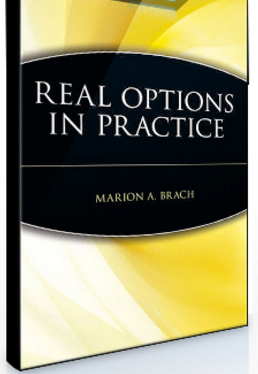
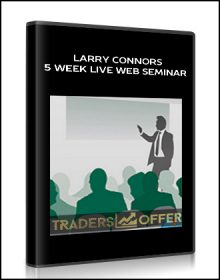
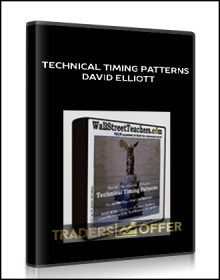




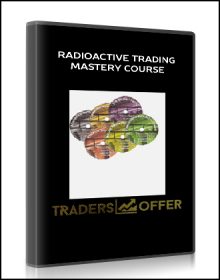
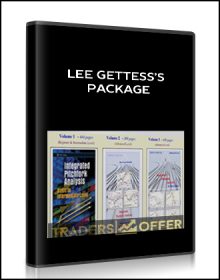
Trevis Trevis –
We create this shop with the mission: Bring the courses to 500 millions of people in the world, to help them awake their power and change their